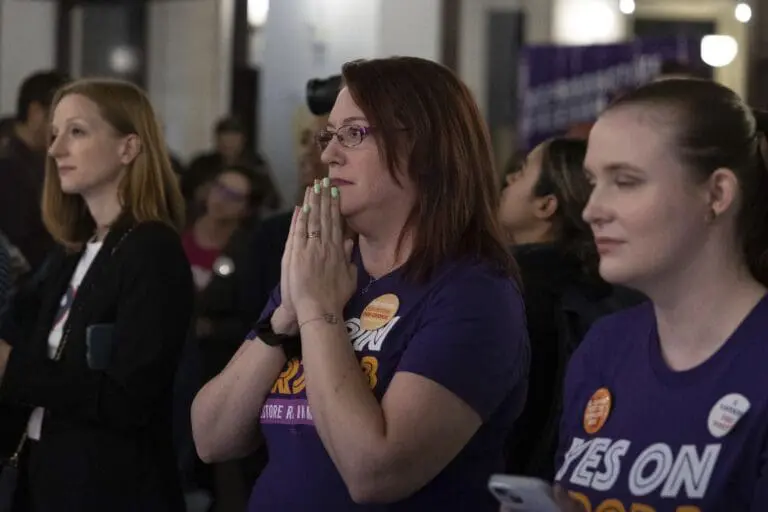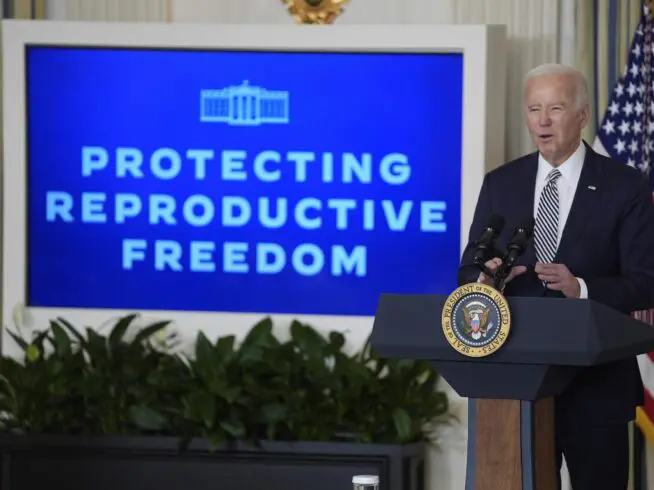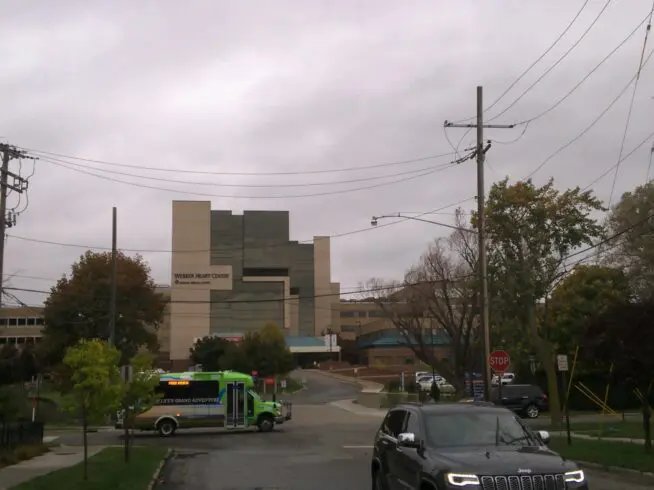Michigan court hears arguments in lawsuit challenging abortion restrictions
‘This is the next step of making sure that the ballot initiative is having the effects that the voters wanted it to,’ said Rabia Muqaddam, an attorney with the Center for Reproductive Rights.

On May 21, a Michigan Court of Claims heard arguments in a lawsuit filed in February that is challenging three abortion regulations in the state.
The restrictions in question are a 24-hour waiting period; state-mandated counseling for patients; and a prohibition on advanced practice clinicians such as nurse practitioners, physician assistants, and nurse midwives performing surgical abortions.
The suit, brought by the organization Center for Reproductive Rights on behalf of Northland Family Planning Centers and the nonprofit Medical Students for Choice, says that the restrictions violate a section of the Michigan Constitution on reproductive freedom that was added in 2022 as the result of a ballot proposal.
Defendants in the suit include Marlon I. Brown, the director of the Michigan Department of Licensing and Regulatory Affairs; Elizabeth Hertel, the director of the Michigan Department of Health and Human Services; and Michigan Attorney General Dana Nessel, a Democrat, who has expressed her support for rescinding the restrictions.
“I think what we have here in Michigan is a real consensus that Michiganders made this incredible change to their Constitution, and in that change they ensure that laws like these no longer pass constitutional muster,” Rabia Muqaddam, a senior staff attorney at the Center for Reproductive Rights, told the Michigan Independent. “When a ballot initiative passes, we still have to bring lawsuits to challenge laws if they’re still on the books. So this is the next step of making sure that the ballot initiative is having the effects that the voters wanted it to.”
Arguing on behalf of the state, Assistant Attorney General B. Eric Restuccia told Judge Siwa Patel that the restrictions existed before the U.S. Supreme Court decision in Dobbs v. Jackson Women’s Health Organization that overturned Roe v. Wade in June 2022 and therefore don’t violate the Constitution.
Muqaddam said that the amendment was not intended simply to restore the status quo before the Dobbs decision but to guarantee far greater access.
“We know from the campaign that Michigan voters wanted to enact something that wasn’t just a return to 2021, that was really going to recognize reproductive freedom in a much more strong fashion,” she said.
After the amendment was passed, the Democratic-led Legislature attempted to repeal some of the state’s abortion restrictions, including the three challenged in the lawsuit. Democratic Rep. Karen Whitsett opposed repealing them, and with the slim 56-54 House majority, the provisions remained.
“Despite our win with Proposal 3, patients continue to face onerous barriers to care imposed by Michigan law. These barriers should not exist under the RFFA,” Renee Chelian, the executive director of Northland Family Planning Centers, said in a February statement.
In an October 2023 interview with the Michigan Independent, Dr. Sarah Wallett, the chief medical operating officer at Planned Parenthood Michigan, pointed out that abortion is time-sensitive: “The sooner someone can have an abortion, the better for them. We know people want abortions earlier in pregnancy, and delays can harm their mental and physical health.”
“Decades of research has been done around mandatory waiting periods and mandatory counseling schemes, and physician-only requirements, and those dozens of articles universally say one thing: that none of them are based in science, and that they impose significant harms on patients,” Muqaddam said.
An affidavit filed in support of a request for a preliminary injunction in the suit by Pamela Merritt, the executive director of Medical Students for Choice, states that the three laws “greatly undermine abortion access in Michigan, with particularly negative effects on low-income and BIPOC (Black, indigenous, and other people of color) communities, and the health of Michigan residents generally.”
Certified nurse midwife and women’s health nurse practitioner Amy Levi stated in her affidavit that the ban on advanced practice clinicians performing surgical abortions “harms patient wellbeing,” adding, “There is no health justification for excluding APCs from providing abortion in early pregnancy in Michigan consistent with their training, experience, and scope of practice.”
“Michigan’s 24-Hour Delay does not enhance decision-making or prevent adverse psychological outcomes due to abortion. It does, however, harm patients by imposing barriers to care,” said an affidavit submitted by Dr. Antonia Biggs, an associate professor and social psychologist in the University of California, San Francisco’s Advancing New Standards in Reproductive Health group.
According to reporting by the Michigan Advance, briefs on the case are due in two weeks, followed by responses from both sides, after which Patel will issue her opinion.




